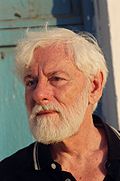At a televised Lebanese army parade that was also broadcast on Israeli TV , the officer read a prepared text to his assembled troops, who were about to be deployed along the Lebanese-Israeli border.
This is what he said in Arabic: "Today, in the name of the comprehensive will of the people, you are preparing to be deployed on the soil of the wounded South, side by side with the forces of your Resistance and your people, which have amazed the world with their steadfastness and blown to pieces the reputation of the army about which it has been said that it is invincible."
In simple language: "the comprehensive will of the people" - the will of all parts of the Lebanese public, including the Shiite community. "Side by side with the Resistance": side by side with Hizbullah. "Which have amazed the world with their steadfastness": the heroism of the Hizbullah fighters. "Blown to pieces the reputation of the army about which it has been said that it is invincible": the Israeli army.
Thus spoke a commander of the Lebanese army, the deployment of which along the border is being celebrated by the Olmert-Peretz government as a huge victory, because this army is supposed to confront Hizbullah and disarm it. Israeli commentators have created the illusion that this army would be at the disposal of the friends of the US and Israel in Beirut, such as Fuad Siniora, Saad Hariri and Walid Jumblatt.
It is no accident that this item was drowned in the deluge of TV blabber, like a stone thrown into a well. After broadcasting the item itself, no meaningful debate about it took place. It was erased from the public mind.
But not only the balloon of the redeeming Lebanese army has been punctured. The same has happened to the multi-colored second balloon that was to serve as an Israeli achievement: the deployment of the international force that would protect Israel from Hizbullah and prevent its re-armament. As the days pass, it becomes increasingly clear that this force will be, at best, a mishmash of small national units, without a clear mandate and "robust" capabilities. The commando raid carried out by our army today, in blatant violation of the cease-fire, will certainly not attract more international volunteers for the job.
So what remains of all the "achievements" of this war? A good question.
AFTER EVERY failed war, the cry for an official investigation goes up in Israel. Now there is a "trauma", much bitterness, a feeling of defeat and of a missed opportunity. Hence the demand for a strong Commission of Inquiry that will cut off the heads of those responsible.
That's what happened after the first Lebanon war, which reached its climax in the Sabra and Shatila massacre. The government refused any serious inquiry. The masses that gathered in what is now called "Rabin Square" (the mythical 400 thousand) demanded a judicial inquiry. The public mood reached boiling point and in the end the Prime Minister, Menachem Begin, gave in.
The Kahan Commission that investigated the event condemned a number of politicians and army officers for "indirect" responsibility for the massacre, even though its own factual conclusions would have justified a much stronger condemnation. But Ariel Sharon was, at least, removed from the Defense Ministry.
Before that, after the trauma of the Yom Kippur war, the government also refused to appoint a Commission of Inquiry, but public pressure forced its hand. The fate of the Agranat Committee, which included a former Chief-of-Staff and two other senior officers, was rather odd: it conducted a serious investigation, put all the blame on the military, removed from office the Chief-of-Staff, "Dado" Elazar - and acquitted the political leadership of any blame. This caused a spontaneous public uproar. In its wake, Golda Meir and Moshe Dayan - predecessors of Olmert and Peretz as Prime Minister and Minister of Defense - were forced to resign.
This time, too, the political and military leadership is trying to block any serious investigation. Amir Peretz even appointed a whitewash-committee, packed with his cronies. But public pressure is building up, and chances seem good that in the end there will be no way out but to appoint a judicial inquiry committee.
Generally, the one who appoints a commission of inquiry and sets its terms of reference predetermines its conclusions. Under Israeli law, it is the government which decides to appoint such a commission and determines its terms of reference. (As a Member of the Knesset, I voted against these paragraphs.) But the composition of the commission is determined by the President of the Supreme Court. If a commission is set up, I assume the present President of the Court, Aharon Barak, a highly respected chief justice, will appoint himself for the job.
IF INDEED such a commission is set up, what will it investigate?
The politicians and generals will try to restrict the inquiry to the technical aspects of the conduct of the war:
(Note: You can view every article as one long page if you sign up as an Advocate Member, or higher).





